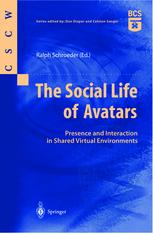

Most ebook files are in PDF format, so you can easily read them using various software such as Foxit Reader or directly on the Google Chrome browser.
Some ebook files are released by publishers in other formats such as .awz, .mobi, .epub, .fb2, etc. You may need to install specific software to read these formats on mobile/PC, such as Calibre.
Please read the tutorial at this link: https://ebookbell.com/faq
We offer FREE conversion to the popular formats you request; however, this may take some time. Therefore, right after payment, please email us, and we will try to provide the service as quickly as possible.
For some exceptional file formats or broken links (if any), please refrain from opening any disputes. Instead, email us first, and we will try to assist within a maximum of 6 hours.
EbookBell Team

5.0
100 reviewsVirtual reality (VR) technology has been developed commercially since the early 1990s [1]. Yet it is only with the growth of the Internet and other high-bandwidth links that VR systems have increasingly become networked to allow users to share the same virtual environment (VE). Shared YEs raise a number of interesting questions: what is the difference between face-to-face interaction and interaction between persons inside YEs? How does the appearance of the "avatar" - as the graphical representation of the user has become known - change the nature of interaction? And what governs the formation of virtual communities? This volume brings together contributions from social scientists and computer scientists who have conducted research on social interaction in various types of YEs. Two previous volumes in this CSCW book series [2, 3] have examined related aspects of research on YEs - social navigation and collaboration - although they do not always deal with VRIVEs in the sense that it is used here (see the definition in Chapter 1). The aim of this volume is to explore how people interact with each other in computer-generated virtual worlds.